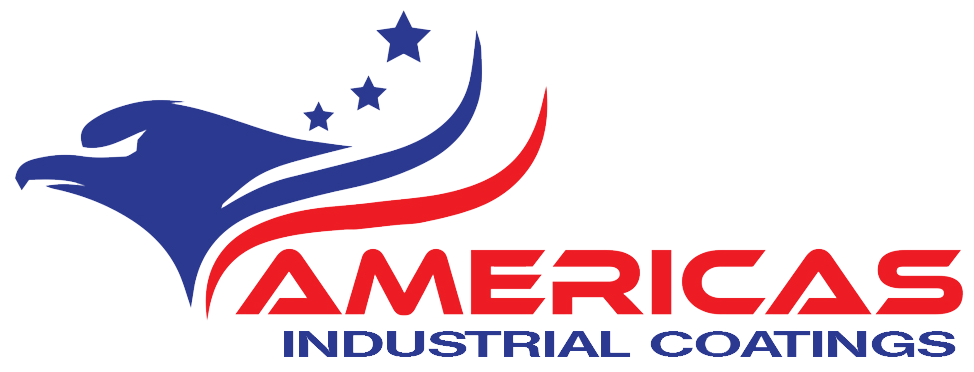When considering the right flooring solution for your garage, it’s essential to understand the variety of options available that can meet your specific needs. While epoxy floors have gained popularity for their durability and aesthetic appeal, there are several compelling garage floor options other than epoxy that might better suit your space. Each alternative flooring solution offers unique benefits, making it crucial to assess your requirements before making a decision.
Many homeowners opt for alternatives due to factors such as:
- Cost-effectiveness: Some materials can be more affordable than epoxy.
- Installation time: Certain flooring types may require less time to install.
- Maintenance: Some options may be easier to clean or less prone to damage from chemicals.
- Aesthetic preferences: Different flooring materials can provide various looks and feels, catering to individual tastes.
As you explore the alternatives, keep in mind how each option performs in terms of durability, safety, and aesthetic appeal. Understanding the distinct advantages and disadvantages of each flooring material can help you make an informed choice that aligns with your garage’s intended use.
If you’re interested in learning more about your flooring options, Call Us Today for a Free Quote and let us guide you in finding the perfect solution for your garage!
Key Benefits of Non-Epoxy Garage Flooring Options
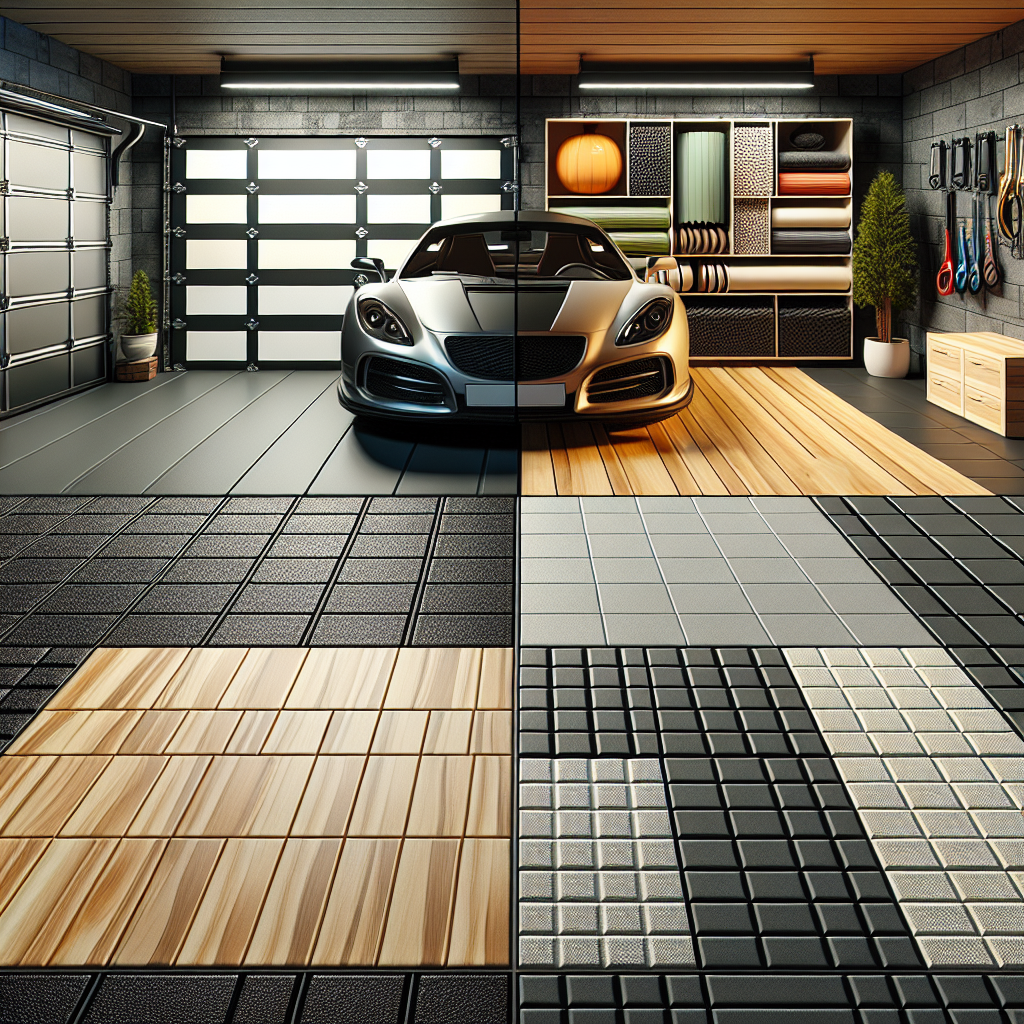
Choosing non-epoxy garage flooring options can provide a range of benefits that cater to different needs and preferences. Here are some key advantages of exploring these alternatives:
- Versatility: Non-epoxy flooring options come in various materials, such as vinyl, tile, and rubber. This versatility allows homeowners to select a flooring type that best suits their style and functional requirements.
- Enhanced Safety: Many non-epoxy surfaces can offer improved traction, reducing the risk of slips and falls, especially in a garage environment where spills may occur.
- Ease of Installation: Options like interlocking tiles or rolled vinyl can often be installed quickly and with minimal tools, making them ideal for DIY enthusiasts or those seeking a fast solution.
- Customizability: Many of these flooring solutions allow for customization in colors and patterns, enabling homeowners to create a unique look that complements their garage and home.
- Low Maintenance: Non-epoxy flooring can be easier to maintain, often requiring just a simple sweep or mop to keep it looking pristine.
By considering these benefits, homeowners can make choices that not only enhance the functionality of their garages but also reflect their personal style and preferences.
Popular Garage Floor Options Other than Epoxy
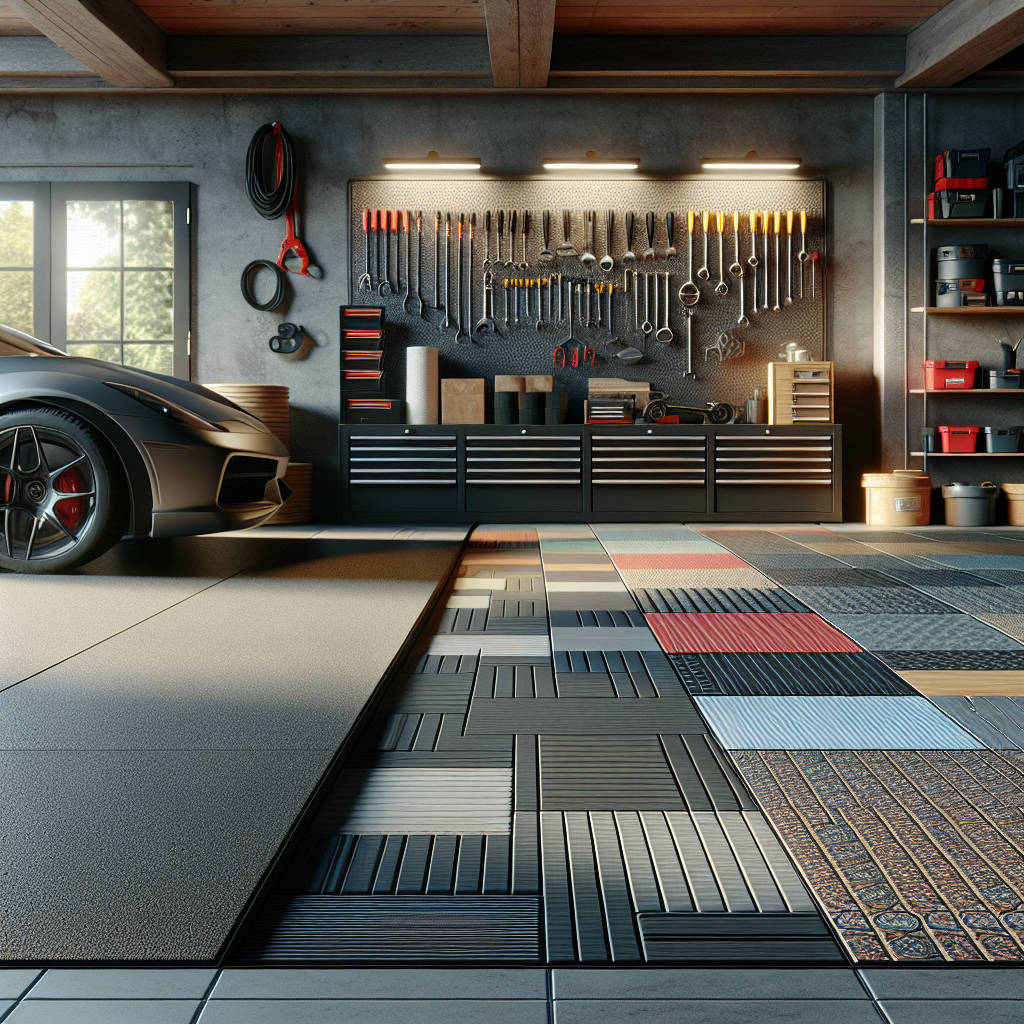
When looking for garage floor options other than epoxy, several popular alternatives stand out, each with its unique characteristics and benefits. Understanding these options can help homeowners make informed choices:
- Vinyl Flooring: Vinyl tiles or sheets are a popular choice due to their affordability and ease of installation. They come in a variety of designs and can mimic the look of more expensive materials. Vinyl is also resistant to moisture, making it suitable for garages.
- Rubber Flooring: Known for its durability and shock-absorbent properties, rubber flooring is ideal for those who might work in their garages or require a comfortable surface. It also provides excellent traction, reducing the risk of slips.
- Concrete Stain or Sealers: For those who prefer a more industrial look, staining or sealing existing concrete can enhance its appearance and protect it from stains and spills. This option is low-maintenance and can add a polished finish to the garage floor.
- Interlocking Tiles: These tiles are easy to install and can be rearranged effortlessly. Available in various materials, including plastic and rubber, interlocking tiles allow for creative design layouts and can be easily replaced if damaged.
- Carpet Tiles: While not as common in garages, carpet tiles can provide a warm touch to the space. They are easy to install, replace, and clean, making them suitable for garages used as multi-functional spaces.
Each of these flooring options offers distinct advantages, and selecting the right one can significantly enhance the overall functionality and aesthetics of your garage.
Comparative Analysis of Garage Flooring Materials
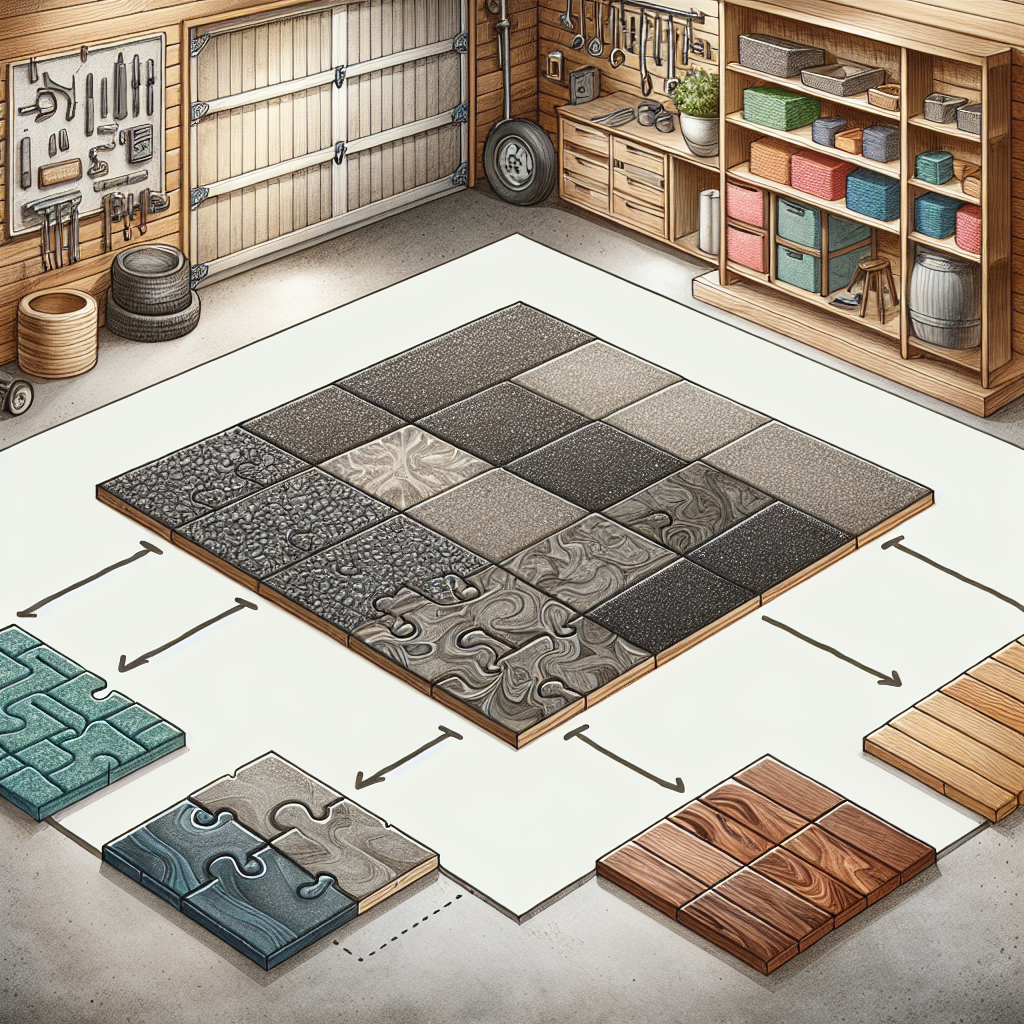
When considering various garage floor options other than epoxy, a comparative analysis of materials can provide valuable insights into which flooring best meets your needs. Here’s a breakdown of key factors:
| Material | Durability | Maintenance | Cost | Comfort |
|---|---|---|---|---|
| Vinyl Flooring | Moderate | Low | Low | High |
| Rubber Flooring | High | Low | Medium | Very High |
| Concrete Stain/Sealers | High | Medium | Low | Low |
| Interlocking Tiles | Moderate | Low | Medium | Medium |
| Carpet Tiles | Low | Medium | Medium | High |
Durability is a crucial factor, especially in garages that may experience heavy traffic or the weight of vehicles. Rubber flooring excels in this area, while carpet tiles may not withstand heavy use.
Maintenance varies significantly among these materials. Vinyl and rubber flooring require minimal upkeep, making them practical for busy homeowners, while stained concrete needs occasional resealing.
In terms of cost, options like vinyl and concrete sealers tend to be more budget-friendly, whereas rubber flooring and interlocking tiles may fall into a mid-range price bracket. Comfort is also an essential aspect; rubber flooring provides an excellent cushion underfoot, making it ideal for those who spend considerable time in the garage.
Ultimately, the choice of flooring will depend on the specific use of the garage, budget constraints, and personal preferences.
Factors to Consider When Choosing Garage Flooring
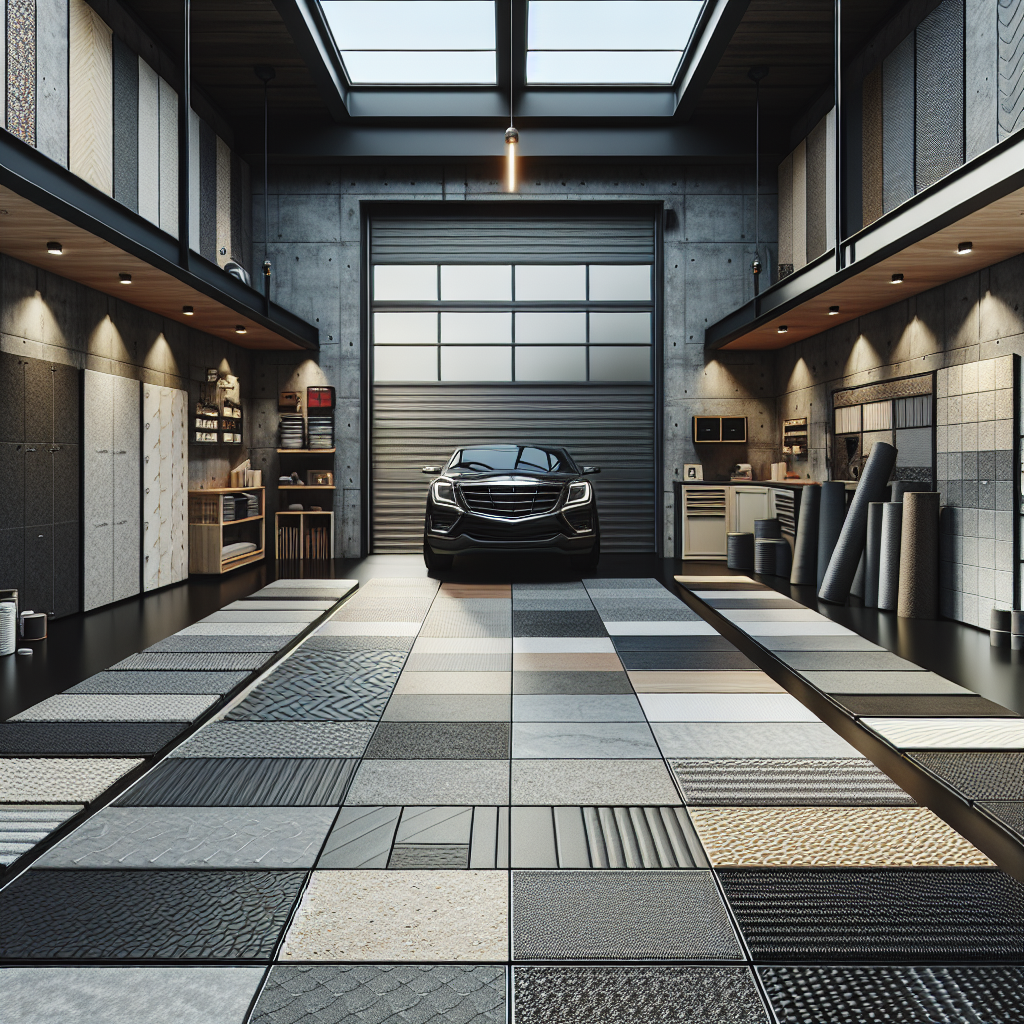
Choosing the right garage floor involves several important factors that can significantly affect the functionality and aesthetics of your space. Here are some key considerations:
- Usage: Assess how you plan to use your garage. Is it primarily for parking vehicles, or will it serve as a workshop or storage area? The intensity of use will dictate the durability required.
- Climate: Consider the climate in your area. If you live in a region with extreme temperatures, certain materials may perform better than others. For example, rubber flooring can provide insulation against cold surfaces.
- Moisture Resistance: Garages are often subject to spills and moisture. Selecting materials that are resistant to water and easy to clean, such as vinyl or sealed concrete, will prolong the life of your flooring.
- Installation: Determine whether you want a DIY project or prefer professional installation. Some flooring options like interlocking tiles are easier to install, while others, such as epoxy or concrete stains, may require a professional touch.
- Aesthetic Appeal: The visual aspect of your garage shouldn’t be overlooked. Choose colors and patterns that match your home’s style. For a more polished look, consider stained concrete or decorative tiles.
- Budget: Costs can vary widely among different flooring options. Set a budget before exploring choices to ensure you find a solution that meets your needs without overspending.
By carefully evaluating these factors, you can select a garage flooring solution that not only meets your practical needs but also enhances the overall look and feel of your space.
Maintenance Tips for Different Garage Floor Types
Proper maintenance is essential for extending the life and appearance of your garage flooring, regardless of the type you choose. Here are some tailored maintenance tips for various garage floor options:
- Epoxy Floors: Regularly sweep or vacuum to remove dirt and debris. Clean spills immediately to prevent staining, and use a pH-neutral cleaner for deeper cleaning.
- Concrete Floors: Seal your concrete floor every few years to protect against moisture and stains. For cleaning, use a pressure washer or a concrete cleaner to remove tough stains.
- Vinyl Flooring: Sweep or vacuum regularly to avoid scratches. Use a damp mop with a mild detergent for cleaning. Avoid harsh chemicals that can damage the vinyl surface.
- Rubber Flooring: Wipe spills immediately to prevent slipping. Regularly mop with warm water and a mild detergent to keep the surface clean and maintain its grip.
- Tile Flooring: Sweep or vacuum to remove debris, and mop with a suitable cleaner. For grout lines, consider using a grout cleaner to keep them looking fresh.
- Interlocking Tiles: Regularly inspect for any damaged tiles and replace them as needed. Cleaning can be done with a broom or mop; avoid soaking as it can loosen the tiles.
By following these maintenance tips, you can ensure that your garage floor remains in excellent condition for years to come. Call Us Today for a Free Quote to explore the best flooring options for your garage!
